- Home
- James Phelan
Dark Heart
Dark Heart Read online
Praise for James Phelan and his work
“James Phelan has produced a big, juicy, rollicking tale in the spirit of Robert Ludlum. We haven’t seen an international thriller like this for a long time.” —Jeffery Deaver on Patriot Act
“James Phelan is one of the hottest thriller writers to arrive on the scene in years.” —Vince Flynn
“James Phelan has earned a new avid fan.” —Steve Berry
“Vivid and suspenseful . . . an espionage novel with grunt.” —Sydney Morning Herald on The Spy
“Walker’s so tough he’s got muscles in his spit.” West Australian
“A finely honed story which proves the thriller genre is alive . . . Can’t wait for the next one.” —Sunday Times on Fox Hunt
“Phelan gets the balance absolutely right . . . An absolute must-read for fans of Clancy, Ludlum et al.” —Bookseller & Publisher on Patriot Act
“Like all good thrillers . . . Phelan keeps the reader guessing right up to the last page.” —The Age on Patriot Act
“Phelan’s techno-thriller is in the same league as Clive Cussler and Tom Clancy.” —Sun-Herald on Blood Oil
James Phelan is the bestselling and award-winning author of twenty-eight novels and one work of non-fiction. From his teens he wanted to be a novelist but first tried his hand at a real job, studying and working in architecture before turning to English literature, spending five years at a newspaper and obtaining an MA and PhD in literature. James has written five titles in the Lachlan Fox thriller series, and the Alone trilogy of young adult post-apocalyptic novels. The ex-CIA character of Jed Walker was first introduced in The Spy, which was followed by The Hunted, Kill Switch and Dark Heart. James has also written a fourteen-book adventure series for Scholastic, titled The Last Thirteen. He has been a full-time novelist since the age of twenty-five, and spends his time writing thrilling stories and traveling the world to talk about them.
To find out more about James and his books, visit:
www.jamesphelan.com
Follow and interact with James:
www.facebook.com/realjamesphelan
www.twitter.com/realjamesphelan
www.instagram.com/realjamesphelan
www.whosay.com/jamesphelan
BY JAMES PHELAN
The Jed Walker books
The Spy
The Hunted
Kill Switch
Dark Heart
The Lachlan Fox books
Fox Hunt
Patriot Act
Blood Oil
Liquid Gold
Red Ice
The Alone series
Chasers
Survivor
Quarantine
New York • London
© 2017 by James Phelan
Cover design by Luke Causby
Cover photographs courtesy Arcangel Images
First published in the United States by Quercus in 2017
All rights reserved. No part of this book may be reproduced in any form or by any electronic or mechanical means, including information storage and retrieval systems, without permission in writing from the publisher, except by reviewers, who may quote brief passages in a review. Scanning, uploading, and electronic distribution of this book or the facilitation of the same without the permission of the publisher is prohibited.
Please purchase only authorized electronic editions, and do not participate in or encourage electronic piracy of copyrighted materials. Your support of the author’s rights is appreciated.
Any member of educational institutions wishing to photocopy part or all of the work for classroom use or anthology should send inquiries to [email protected].
eISBN 978-1-63506-025-6
Distributed in the United States and Canada by
Hachette Book Group
1290 Avenue of the Americas
New York, NY 10104
This book is a work of fiction. Names, characters, institutions, places, and events are either the product of the author’s imagination or are used fictitiously. Any resemblance to actual persons—living or dead—events, or locales is entirely coincidental.
www.quercus.com
In memory of Denise Carter
Contents
Prologue
Chapter 1
Chapter 2
Chapter 3
Chapter 4
Chapter 5
Chapter 6
Chapter 7
Chapter 8
Chapter 9
Chapter 10
Chapter 11
Chapter 12
Chapter 13
Chapter 14
Chapter 15
Chapter 16
Chapter 17
Chapter 18
Chapter 19
Chapter 20
Chapter 21
Chapter 22
Chapter 23
Chapter 24
Chapter 25
Chapter 26
Chapter 27
Chapter 28
Chapter 29
Chapter 30
Chapter 31
Chapter 32
Chapter 33
Chapter 34
Chapter 35
Chapter 36
Chapter 37
Chapter 38
Chapter 39
Chapter 40
Chapter 41
Chapter 42
Chapter 43
Chapter 44
Chapter 45
Chapter 46
Chapter 47
Chapter 48
Chapter 49
Chapter 50
Chapter 51
Chapter 52
Chapter 53
Chapter 54
Chapter 55
Chapter 56
Chapter 57
Chapter 58
Chapter 59
Chapter 60
Chapter 61
Chapter 62
Chapter 63
Chapter 64
Chapter 65
Chapter 66
Chapter 67
Chapter 68
Chapter 69
Chapter 70
Chapter 71
Chapter 72
Chapter 73
Epilogue
PROLOGUE
Freeing herself from under the bodies would not be easy. It would take all the strength Rachel had. The blood made it harder. She closed her eyes and pictured a different time and place. The tangle of lifeless arms and legs, the weight of leaking torsos and heads, became friends playing a childhood game of stacks-on. Move, she thought. Get out of here. She slipped, and shifted, and slid. Got nowhere.
It’s useless. I’m trapped.
She could smell the death around her. Could taste the coppery blood, like an old penny in her mouth. Hear the silence. She couldn’t move her arms enough to be useful—they were pinned beneath hundreds of pounds of dead weight. She squirmed and wriggled. The blood was tacky and thick. Gallons of it. Multiple gunshot wounds. High-powered assault rifles. New weapons, nothing like the ones the militia used. The cacophony still rang in her ears; the screams echoed. Otherwise, it was silent. She moved fast and shuffled on her back, but she was getting nowhere on the slick ground, and a body above her shifted, blood pooling onto her face, forcing her to cough and gag and start to hyperventilate.
You’ll die like this.
Rachel Muertos kept her head tilted to the side and closed her eyes and slowed her breathing. Something else. Anything else. Somewhere happy. Another time. She pictured her mother, a career librarian in San Francisco elementary schools, and it worked better than the image of the playground. Her mother had been through hell to get into America, and she’d survived. She’d thrived. Thinking of her mother’s smiling face took her away from the reality around her as she lay still. H
er breathing relaxed. Her senses settled. The screaming, black silence gave way to actuality. First came noises. She heard dripping, and the wind that blew through the long-ago bombed-out warehouse. The dripping sound was blood. Rachel fought to stay composed. She pictured her mother’s face, that familiar smile, and thought back to being in bed as a child in Los Angeles when they’d first arrived in the United States. It was a few months before they’d moved north and settled and she’d started preschool and she could remember her mother reading her books in English. It was like they were both still there, in that moment long ago. The memory calmed her. She felt hope.
Move, bit by bit.
Rachel started to roll her shoulders; her arms were pinned to her sides. She tried her feet; her heels moved up and down like paddles. She shifted and slipped and tried to move, just a little, away from the blood that now drizzled onto her neck. In her mind’s eye it was like trying to get out from beneath an avalanche of bookshelves, all that mass, all those words not spoken, her mother cheering her on. The reality seemed made-up, unreal, but she knew what happened. She’d seen it. Heard it. Real-time. Hyper real, really, because when the killing had started, everything had amplified.
Stop. Rest. Relax. Try again.
She managed to move just enough to keep her face clear, and then stopped moving to regain her strength. The heat kept the blood slick and viscous, even now, almost two hours after the event. Drip-drip-drip. The heady funk of body fluids created a humid environment. Rachel breathed through her mouth to avoid the smell. She heard a noise. A bird, perhaps, or a person. Far off. Like shuffling. Rachel made a noise. Not a call for help, but a faint hello. She felt it was safe now. To make noise. To create movement. To try to emerge from the tangle of death that had kept her alive. To find safety. But her fright and initial reaction, which was to play dead as the bodies piled around and then upon her, was proving her downfall. The strength had gone out of her. All that mass. Her arms and legs tingled. The weight pressing on her body meant her chest could only rise and fall in small, rapid motions. She knew that if she breathed out fully, her lungs would not have the power to inflate again. She was hot and tired and getting more and more light-headed.
You have to keep trying. You have to save yourself.
It took her ten minutes of wriggling and paddling and shifting to realize that she couldn’t get out. Not on her own. She didn’t have the strength. She’d spent too long in the one spot, with five, or six, or more, bodies piled on her. Then her breath started to quicken as she thought that maybe she’d been shot and couldn’t feel the pain of the wound for the numbness of the weight upon her and the time elapsed. Maybe her spine was compromised. She started to scream but knew it was useless because she could barely let any sound out. No one had heard the gunshots and carnage and thought to investigate it. No one would hear her scream and investigate it. But it was all she could do, and she had to do something. She screamed. The sound was pitiful. Her lungs could inflate maybe halfway, and she could only expel half that. The sound was of a small child, and she again pictured herself sitting up reading with her mother not long after they’d arrived in the United States to make a new life.
Your mother went through hell. Get out of this, for her.
She yelled. A little louder this time. Stopped. Kept still.
Movement. A noise. Hope. Or a threat.
Then, one of the bodies shifted. Slid right off. Thumped as it landed. And then another. The release of pressure was like being born again. She could breathe, and see, and hear, and move. Another body fell to the concrete floor. And another.
And then a face, above her. One of the other Americans. He’d come back, to help her. He shifted the bodies and helped her up to a seated position, and looked her in the eyes as he spoke.
“Find Jed Walker.”
1
Seven thousand miles away, Jed Walker took his first unaided steps in four days. The nurse was close by, as was the physiotherapist, and he waved them away and gave a thumbs up. This was nothing. A nick. A ricochet of a pistol round. Through the quad. Along it, actually, a groove half an inch wide and three inches long. Surface muscle damage, some skin grafted from his hip to make the cosmetic repair. Plenty of physiotherapy to regain full functionality. Walker was prepared for that. He’d been shot before, twice in fact, and he’d got through both those rehabs just fine. This was nothing on those instances. Besides, being shot wasn’t the worst that had happened to him. He stopped and turned and headed back down the corridor of UCSF Medical Center in San Francisco and he knew that even with the full weight on his leg he’d be fine to go home soon. He’d be slowed down for a while, sure, but as long as the stitches held and the wound healed, he’d be up to speed in no time. He wouldn’t be anywhere near full capacity for a few weeks, then he might have a slight limp for a couple of months after that while his muscles adjusted to their new arrangement, but he’d be fine.
Which is okay, Walker figured. So long as nothing urgent comes up.
•
Rachel Muertos woke to the beep of intensive-care equipment.
“Good morning,” a voice said. “Do you remember your name? Where you are?”
She saw that the speaker was a man in military uniform. ACUs, to be precise—the US Army Combat Uniform, all patterned and baggy and ready to see action. He was a veteran from the campaign in Afghanistan, because he was wearing a legacy camouflage pattern that had since been replaced. Officer’s rank sewn on his bib, but she didn’t know what it meant. Army Surgeon’s patch attached above his name plate and on his left sleeve pocket flap. She knew that symbol. He stood next to her bed. Close. Her eyes lingered over the medical patch, which depicted a modified caduceus, with snakes entwining a winged sword rather than the conventional staff. The sum of it all was a relief to see, and she smiled inwardly at the recognition. Being here meant she was no longer in Syria. But where?
“What do you remember?” he asked.
“Your medical patch,” Muertos said. “It’s wrong.”
“What do you mean?”
“It’s not your fault; it’s the Army’s mistake, from way back. In the US Army context, the staff is replaced by a sword. But the caduceus symbol is the wrong symbol: it has nothing to do with medicine. The Rod of Asclepius, that’s what should have been used. That has a single snake, rather than the two-snake caduceus design; it has ancient associations with trade, trickery, and eloquence.”
The army doctor was quiet, watching Muertos. Beyond the surgeon and his pen light that was following her eyes, she could see the wall of a building. Not a field hospital. There was air conditioning. The bleep of medical equipment. Overhead lighting. A sterile smell.
“Your name?” As he spoke he pocketed his pen light and then made notes on her medical chart. “Can you tell me your name?”
“Rachel,” she replied. “My name is Rachel Maria Muertos.”
“Do you know where you are, Rachel?”
“A hospital.”
“Specifically?”
“Specifically?”
“You’ve been told.”
“Told? When?”
“We had this same chat yesterday,” he replied, taking a step closer, again shining the light in her eyes, then moved back. “I told you where you were. Do you remember that? Do you recall what I told you?”
Rachel paused, then shook her head. Then went still. She became aware of another presence in the room. Another man. A big man. In the far corner. In shadows. Dressed in a suit. Official.
Rachel asked the surgeon, “Where am I?”
The doctor moved away and turned toward the other man. “She’s not ready for questioning. She needs more time. Her memory, it’s coming and going, but she’s not ready.”
The suited man stepped from the shadows. Rachel could just make him out. Unfamiliar. Beyond big. He was huge. Broad shoulders. When he got closer, she looked away. There was something about him. He was aged about forty, his head shiny under the lights. Strong jaw. A nose that had be
en broken more than once. Wide-set dark eyes. A brute.
“Two minutes,” he said to the doctor, who shrugged and moved back to give him room. The suited man’s voice was deep, gruff. American, but unspecific. Maybe west coast. But he had no tan, and there was nothing relaxed about him, which were things Muertos associated with her adopted home state of California. This guy looked like he had a high degree of Neanderthal in his DNA make-up. He was easily as wide and tall as a door. No fat. All muscle. His suit bulged at the biceps. He didn’t wear a tie, because there was no clothing brand in the world that made a dress shirt to button up around a neck that size, let alone a tie long enough to wrap around it. A chill ran through Muertos as she felt the man staring at her.
“Rachel, I’m with Homeland Security,” he said. “We spoke yesterday, you and I.”
“We . . . did?” She looked up at him, and forced herself not to look away. She searched his face, and though she saw nothing familiar she now knew why there was something odd about him. He wasn’t just bald, he was completely bald—no eyebrows, no eyelashes, no shadow of a beard. Just dark eyes set in a big face. The eyes were calculating. Fixed on her, like a predator.
“Yes,” he said. “What do you remember?”
“Where am I?”
“You’re at Ramstein, Germany. Military hospital. You were told that yesterday. What do you remember about how you got here?”
“How’d I get here?”
He paused, his eyes searching her face, then said, “You remembered all that crap about the US Army medical patch, and you don’t remember what brought you here?”
“What? No. No, I don’t. How’d I get here? Please, tell me.”
He looked around the room like he was frustrated. She could see a pulse ticking away at a thick vein in his temple.
“You showed up in hospital in Damascus, Syria, two days ago,” he said. He looked at her. His eyes, set back below a big bony brow, searched her own for any sort of telling sign. “When you were brought in, you were covered in blood.”
“Blood?”
“Yes. A doctor from Médecins Sans Frontières thought to run checks on it. It was the blood of at least six separate people.”

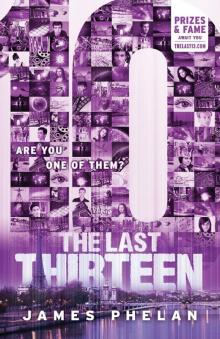 10
10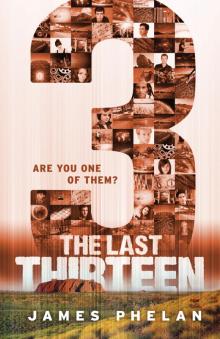 3
3 Survivor
Survivor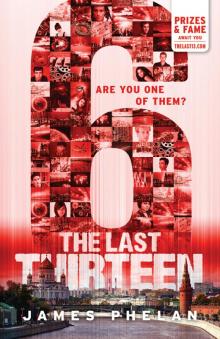 6
6 The Hunted
The Hunted Quarantine
Quarantine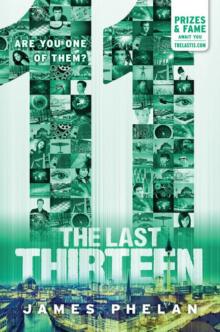 11
11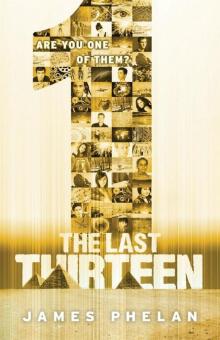 The Last Thirteen - 1
The Last Thirteen - 1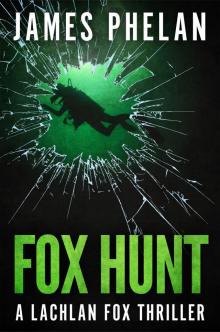 Fox Hunt
Fox Hunt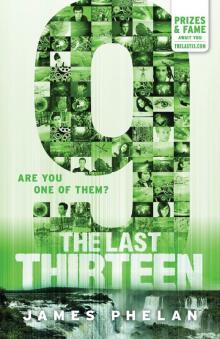 9
9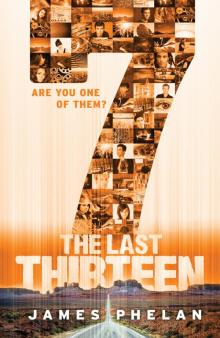 7
7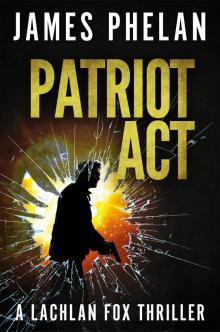 Patriot Act
Patriot Act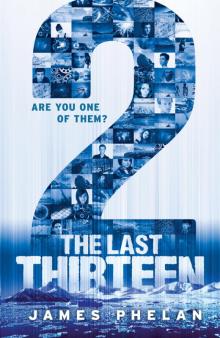 2
2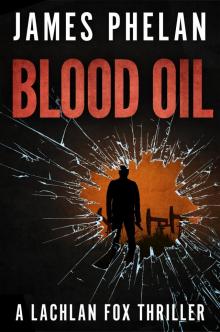 Blood Oil
Blood Oil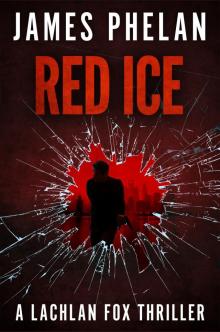 Red Ice
Red Ice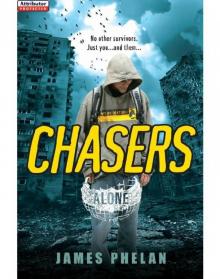 Chasers
Chasers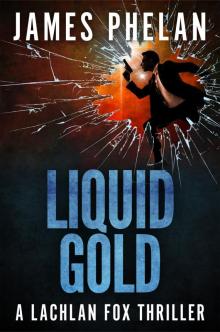 Liquid Gold
Liquid Gold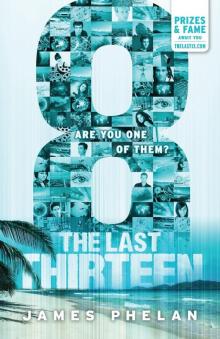 8
8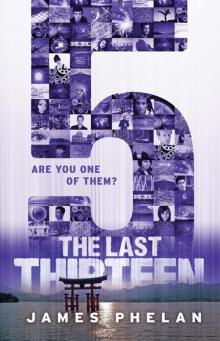 5
5 The Spy
The Spy Kill Switch
Kill Switch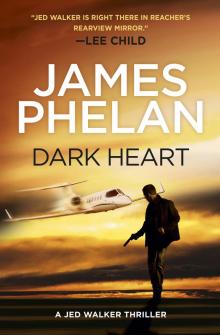 Dark Heart
Dark Heart